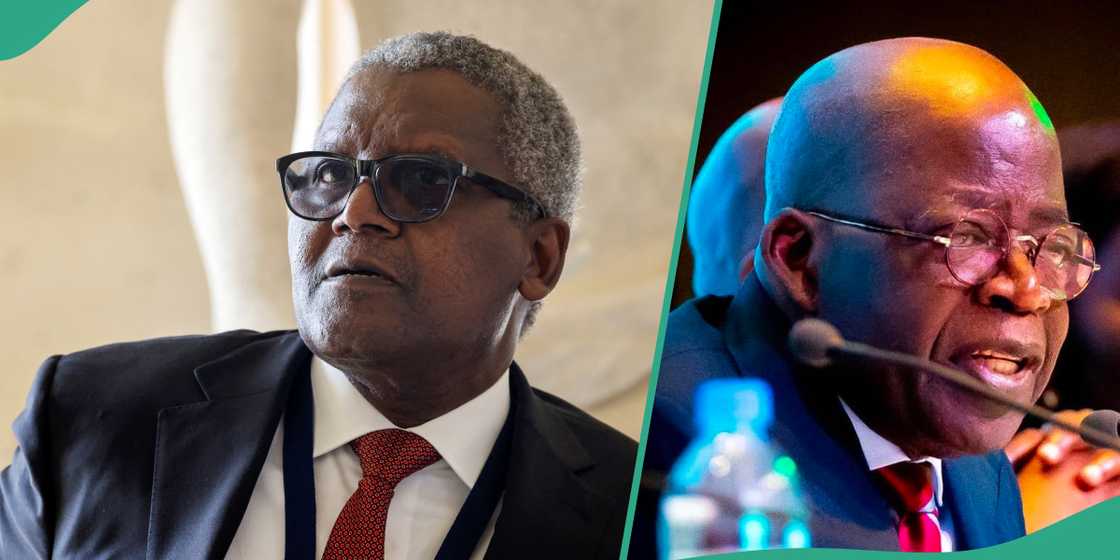Oil and gas experts have expressed skepticism over President Bola Ahmed Tinubu’s recent directive for the Nigerian National Petroleum Company Limited (NNPCL) to sell crude oil in Naira to Dangote Refinery and other local refineries.
They argue that this move may not resolve the 650,000-barrel-per-day refinery’s ongoing challenges in the sector.
On Monday, at a Federal Executive Council meeting, President Tinubu approved the sale of crude oil to Dangote Refinery and other local refineries in Naira, a decision aimed at addressing the crude supply crisis plaguing these refineries.
Dangote Refinery has been vocal about the difficulties in securing crude oil, even resorting to sourcing from the US and Brazil despite Nigeria being Africa’s largest crude producer.
READ ALSO: Group urges Dangote to respect NNPCL, other regulatory bodies
The refinery has accused international oil companies in Nigeria of sabotage and has had regulatory compliance disputes with the Nigerian Midstream and Downstream Petroleum Regulatory Authority.
Special Adviser to the President on Information and Publicity, Bayo Onanuga, announced the directive, emphasizing its goal to stabilize the pump price of refined fuel and the dollar-naira exchange rate.
He noted that 450,000 barrels of crude oil meant for domestic consumption would be sold in Naira to Nigerian refineries, with Dangote Refinery as the pilot. The refinery currently requires about 15 cargoes of crude oil annually, costing approximately $13.5 billion, and NNPCL has committed to supplying four cargoes.
President’s Special Adviser on Revenue, Zacch Adedeji, highlighted the potential economic benefits, estimating annual savings of $7.3 billion and a reduction in monthly forex expenditure on petroleum products by $660 million.
READ ALSO: NEF warns against frustrating Dangote Refinery
He stressed that the move mitigates Nigeria’s heavy reliance on foreign exchange for crude oil imports, which accounts for roughly 30 to 40 percent of the country’s forex expenditure.
However, industry experts have raised concerns about the feasibility and impact of this decision.
Managing Partner at BBH Consulting, Barr. Ameh Madaki, argued that the directive would not solve Dangote Refinery’s crisis due to the lack of spare crude oil for sale. He suggested selling crude oil for domestic consumption at the wellhead cost of production as a more viable solution.
Energy expert Joseph Eleojo questioned NNPCL’s ability to supply crude oil to local refineries, citing historical challenges.
He acknowledged the benefit of reducing pressure on refineries from sourcing foreign exchange but cautioned against expecting drastic price reductions.
Group Chairman of International Energy Services Limited, Dr. Diran Fawibe, supported the decision, noting that it would help the refinery price its products properly and reduce pressure on the Naira and fuel imports.
He emphasized the potential positive impact on Nigeria’s foreign exchange market and sustainable product pricing.
The Centre for the Promotion of Private Enterprise (CPPE) also welcomed the decision, stating that it would ease the current pressure on petroleum product pricing.
However, CPPE highlighted concerns about NNPCL’s capacity to supply the crude oil, emphasizing that availability is crucial for the directive’s success.
Overall, while President Tinubu’s order to sell crude oil in Naira to local refineries is seen as a step towards addressing some of the challenges in Nigeria’s oil sector, experts remain cautious about its long-term effectiveness and implementation.
| ReplyReply allForward Add reaction |

 Entertainment1 week ago
Entertainment1 week ago
 Business1 week ago
Business1 week ago
 Health1 week ago
Health1 week ago
 Business1 week ago
Business1 week ago
 Latest1 week ago
Latest1 week ago
 Football1 week ago
Football1 week ago
 Entertainment1 week ago
Entertainment1 week ago
 Entertainment6 days ago
Entertainment6 days ago

